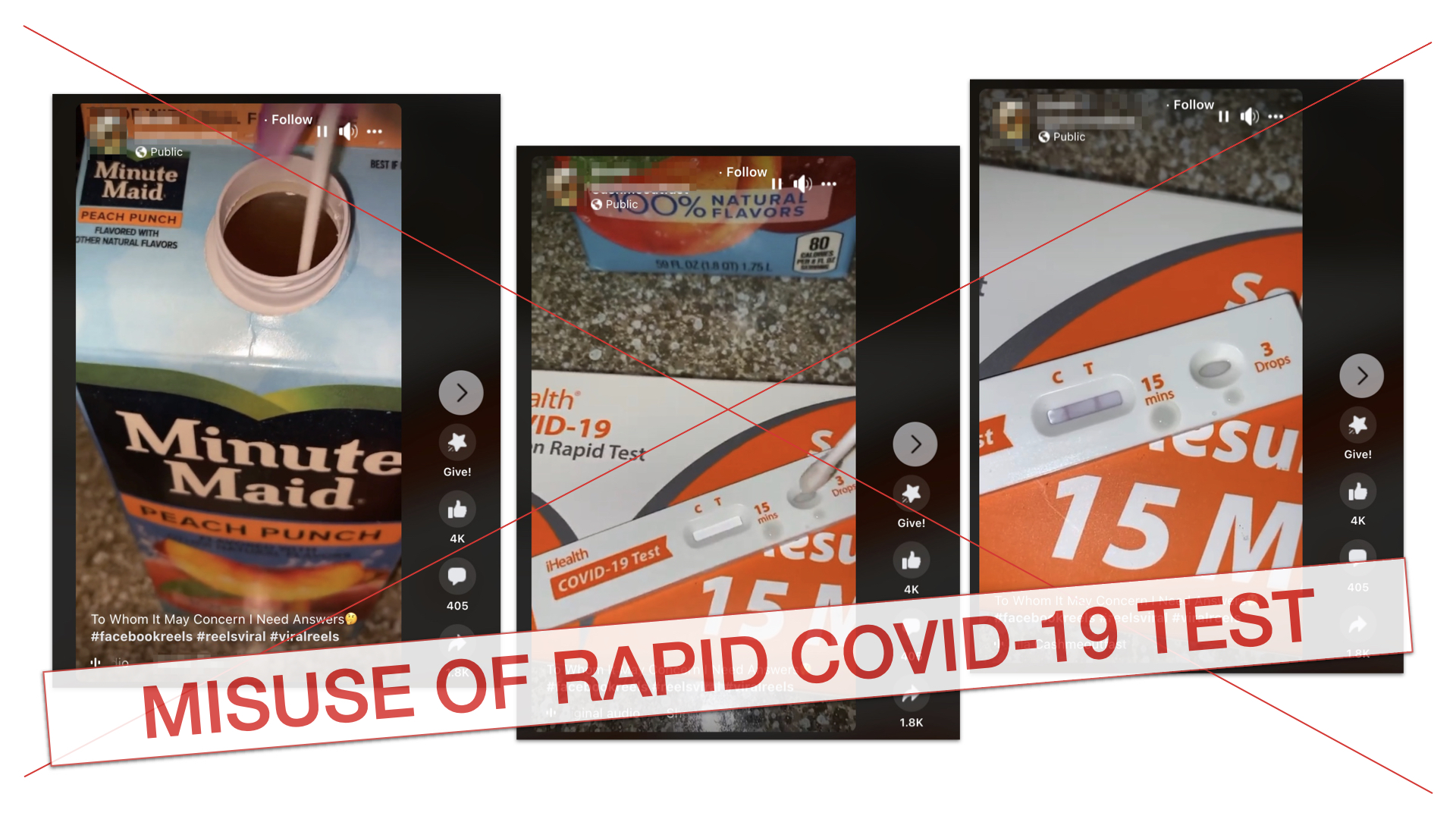
Videos shared on Facebook suggest that testing samples of different beverages on at-home COVID-19 tests will get you a positive test result.
In a video shared March 2, a Facebook user claimed she’d been accused of faking a positive COVID-19 rapid test result after testing a sample of Fanta Orange soda.
"A lot of you guys were saying that it was fake," she said. "So I went in my refrigerator and I grabbed a jug of Minute Maid Peach Punch, and I went ahead and put three drops on" the COVID-19 test, she said, as video showed her using a swab to add droplets of punch into the sample port of an iHealth COVID-19 test.
"So the first line did pop up," she said seconds later. "And then it (began) to look like a second line, but it wasn’t really clear, so we’re going to let it sit for a little more time. Mind you, you do have to let the COVID test sit for 15 minutes to get accurate results."
After just a few more seconds, though, she reached her conclusion.
"So, here you can see: That is definitely a positive COVID test," she said. "It did test positive for COVID, Minute Maid Peach Punch."
"I need answers," the Facebook user wrote, adding the thinking emoji. A person in the comments suggested that the positive result furthered their belief that the tests "are bogus." Other people suggested the positive result came from failing to follow the test’s instructions.

(Screenshots from Facebook.)
This post was flagged as part of Facebook’s efforts to combat false news and misinformation on its News Feed. (Read more about our partnership with Meta, which owns Facebook and Instagram.)
Testing drops of some beverages (and other substances) with a COVID-19 test can cause the test to display a positive result. That does not mean those drinks contained the virus, nor does it prove that at-home COVID-19 tests are unreliable.
In 2021, researchers found that adding samples of soda, energy drinks, alcoholic beverages and even bottled water to what’s known as the "sample port" of an at-home COVID-19 antigen test can cause a positive red test line to appear.
When tests are used according to the directions, the sample port refers to the part of the test where you add droplets of the liquid that contain a biological sample from a nasal swab.
However, when those same drinks were equally mixed with the recommended buffer, the tests did not produce positive results. The researchers theorized that the false positive results could stem from the drinks’ pH interacting with the COVID-19 test.
When the Facebook user ran her Minute Maid Peach Punch experiment, she did not use the recommended buffer.